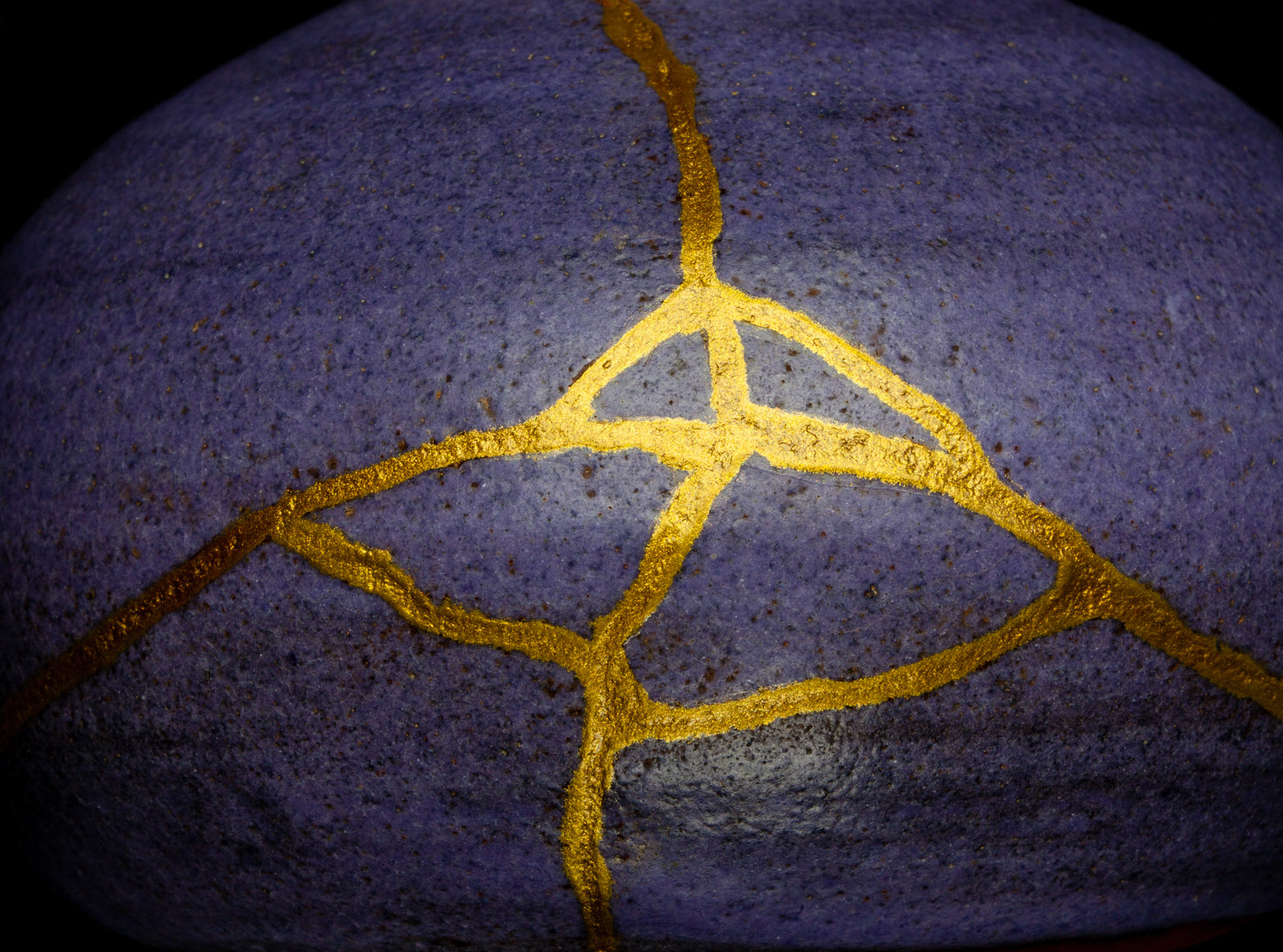What is CBT?
Cognitive Behavioural Therapies (CBT) are a range of talking therapies based on the idea that thoughts and images (cognitive), what we do (behavioural), and feelings are all connected. By changing one, all the others are altered.
When we feel worried or distressed, we can fall into patterns of thinking and responding from the past which can worsen how we feel. CBT works to help us notice and change problematic thinking styles or behaviour patterns so we can feel better. Trauma focused CBT (TF-CBT) is particularly interested in the meaning of these thoughts and images.
Since Aaron Beck published his research on depression in a manual in 1979 there has been a wave of new effective treatments for anxiety, depression and related areas such as long-term conditions, insomnia, addiction, and eating disorders.
Kintsugi is the Japanese art of repairing broken ceramics with gold, thus treating the breakage and repair as a valuable part of the history of the object, rather than something to disguise. We can learn from this art that breaking unhelpful thought patterns or behaviours and healing can be an integral part of one’s life, and something beautiful to embrace with pride.
Does CBT work?
CBT has collected a vast evidence base from comprehensive randomized control trials over many years. Despite the amount of definitive evidence that CBT works, it doesn’t mean CBT is better than other approaches, it just means that we know it works with or without the need for medication.
For the best results, the person treating will need to be fully qualified in CBT and supervised to deliver high quality CBT.
There are a number of well-established CBT protocols for the treatment of depression and anxiety disorders. Specialist CBT training is needed to deliver these protocols effectively. They are effective for many people, but where these protocols are not sufficient on their own, you will work collaboratively with your therapist to find the most effective bespoke approach for you.
The job of a CBT Therapist is to help you to become your own therapist, and this is usually achieved between 6-20 sessions, sometimes sooner. The strategies learned will help you long after therapy has finished. Questionnaires are used throughout therapy to guide and help us mark progress. When you start treatment, we will develop a ‘formulation’ of the problem. We will explore how the problem developed, what is keeping it going, and why it isn’t going away. We will look at your goals for treatment, and following on from this develop a treatment plan.
The sessions usually last up to 60 minutes, but some sessions may be shorter or longer depending on need.
CBT is evidence-based, effective, medication free or combined with medication, and long lasting.
How do I get CBT therapy?
CBT is often delivered face to face, but effective remote therapy using telephone, webcam and online real time synchronous text based therapy is also available safely and securely (HIPAA compliant) wherever you are located. Please enquire for more details.
People often don’t seek help until a long time after the problem has established itself, but these problems are very common and very treatable. Effective evidence-based psychological treatments by experts in CBT are now available for adults, children, and young people in Tokyo.
Are you ready to start?
or learn more about me or my CBT services


